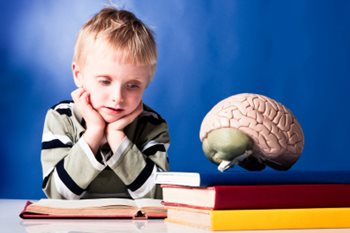Oct 1, 2013
Hallucinations. Delusions. Disorganized speech and actions. Apathy. These are the most common symptoms associated with schizophrenia, and they are shared by both adults and children.
Although childhood-onset schizophrenia is extremely rare, with no more than one in every 100 adults living with schizophrenia having developed it during childhood, the challenges of correctly diagnosing, treating and living with the illness remain—as do opportunities to learn from it.
Dr. Judith Rapoport, Chief of the Child Psychology Branch at the National Institute of Mental Health (NIMH) joined this month’s Meet the Scientist Webinar Series to present on “Childhood-Onset Schizophrenia—The Study and Treatment.” The webinar was hosted by Brain & Behavior Research Foundation President and CEO, Jeffrey Borenstein, M.D., on Monday, Sept. 9.
Childhood-onset schizophrenia is a “rare form of a disorder that isn’t rare,” Rapoport says, “but sometimes studying an extreme population can be very useful in understanding a disorder, such as with Alzheimer’s or breast cancer.”
The process, she reveals, has been difficult. If children are experiencing very severe expressions of symptoms associated with schizophrenia, they are often diagnosed as such, when in all likelihood they are living with a much more common mental illness for their age group.
However, “if you start with a group of children who have been correctly diagnosed with schizophrenia, it’s as if they had many vulnerabilities to disorders before they became psychotic. This is a really important part of understanding the disorder.”
Another aspect to understanding childhood-onset schizophrenia involves tracking brain development, not just in those with the mental illness but in comparison to their healthy peers.
In normal brain development, Rapoport describes, there is a gradual thinning of the cortex. In those with childhood onset schizophrenia, on the other hand, there is a “very rapid…loss of brain tissue.”
Further comparison may be made between those living with the mental illness and their healthy siblings, especially in twins. Brain imaging studies of these twins suggests a combination of nature and nurture—genetics and the environment—plays a hand in a child developing schizophrenia.
“We see the same abnormalities of the brain in the identical twin that’s healthy as we do in the twin that’s ill, which suggests genetics as a cause,” says Rapoport, “but there are also abnormalities that the ill twin has and the healthy one does not, suggesting genetics or something in the environment is causing problems as well. In twins, too, you can see the genetic markings more clearly than in others…which can help in learning about adult schizophrenia.”
While such studies are encouraging, short-term prospects for treatment are limited.
“[Childhood Onset Schizophrenia] is so rare, and we do a bad job of dealing with things we don’t really see enough of,” Rapoport explains.
For those with the mental illness, she suggests parents find specialized consultation, often found at a medical college. They should also talk with the child about their symptoms.
In recent years, cognitive behavioral therapy (CBT) has produced positive results as well.
“It can be tailor made for very, very specific aspects of schizophrenia that are very hard to treat…such as the negative symptoms, the apathy…and also helps people understand the specific nature of the disorder. CBT can get an individual to cognitively assess themselves, which will affect their behavior.”
Again, she cautions both caregivers and medical professionals to exercise caution when seeking a diagnosis. There is no one simple answer in either diagnosis or treatment. The symptoms, their severity, the treatment regimen that produces the best results—as with any other mental illness, these factors will vary from person to person.
“There’ve never been such exciting opportunities for research, and the reason why research is needed is because it’s clear we need new treatments and better treatments,” Rapoport says.
“It’s important to remember,” Borenstein concludes, “that the whole person needs treatment, not just one part of a person.”
NAMI HelpLine is available M-F, 10 a.m. – 10 p.m. ET. Call 800-950-6264,
text “helpline” to 62640, or chat online. In a crisis, call or text 988 (24/7).